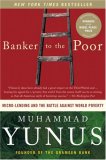Summary | Excerpt | Reviews | Beyond the Book | Readalikes | Genres & Themes | Author Bio

Critics' Opinion:
Readers' Opinion:
First Published:
Jun 1999, 258 pages
Paperback:
Oct 2003, 288 pages
 Book Reviewed by:
Book Reviewed by:
BookBrowse Review Team
Buy This Book
CHAPTER ONE
Number 20
Boxirhat Road, Chittagong
Chittagong, the largest port in Bangladesh, is a commercial city of 3 million
people. I grew up on Boxirhat Road in the heart of Chittagong’s old business
district. A busy one-way lane, just wide enough for one truck to pass, Boxirhat
Road connected the river port of Chaktai to the central produce market.
Our section of the road lay in Sonapotti, the jeweler’s section. We lived at
Number 20, a small two-story house with my father’s jewelry shop workshop tucked
beneath us on the ground floor. When I was a boy, my world was full of the noise
and gasoline fumes of the street. Trucks and carts were forever blocking our
road, and all day long I would hear drivers arguing, yelling, and blaring their
horns. It was a sort of permanent carnival atmo¬sphere. When toward midnight the
calls of passing street vendors, jugglers, and beggars finally subsided, the
sounds of hammering, filing, and polishing in my father’s workshop took over.
On the upper floor, we occupied just a kitchen and four rooms: Mother’s Room,
Radio Room, Big Room, and a dining room where a mat was spread out three times a
day for our family meals. Our playground was the flat roof above. And when we
got bored, we often idled away our time watching the customers downstairs or the
gold artisans at work in the back room, or we would just look out at the
endlessly changing street scenes.
Number 20 Boxirhat Road was my father’s second business location in Chittagong.
He had abandoned the first when it was damaged by a Japanese bomb. In 1943, the
Japanese had invaded neighboring Burma and were threatening all of India. In
Chittagong, however, the air battles were never intensive. Instead of bombs, the
Japanese planes dropped mostly leaflets, which we loved to watch from the
rooftop as they floated like butterflies down over the city. But when a wall of
our second house was destroyed by a Japanese bomb, my father promptly shifted us
to the safety of his family village, Bathua, where I had been born at the
beginning of the war.
Bathua is some seven miles from Chittagong. My grandfather owned land there, and
a major part of his income came from farming, but he gravitated toward the
jewelry trade. Dula Mia, his eldest son (and my father), also entered the
jewelry business and soon became the foremost local manufacturer and seller of
jewelry ornaments for Muslim customers. Father was a soft-hearted person. He
rarely punished us, but he was strict about our need to study. He had three iron
safes, each four feet high, built into the wall at the back of his store behind
the counter. When the store was open for business, he left the safes open. With
the insides of their heavy doors covered in mirrors and display racks, they
appeared to be not safes at all, but part of the decor. Before the fifth prayer
of the day, at closing time, father would push the drawers of the safes shut. To
this day I would recognize the squeal of those ungreased hinges and the sound of
six locks on each safe clicking shut. These sounds gave my older brother Salam
and me just enough time to stop whatever we were doing and to leap back to our
books. As long as Father saw us seated with our reading, he would be happy and
say, “Good children, good boys.” Then he would make his way to the mosque for
prayer.
My father has been a devout Muslim all his life. He made three pilgrimages to
Mecca and he usually dressed all in white, with white slippers, white pajama
pants, a white tunic, and a white prayer cap. His square tortoiseshell glasses
and his gray beard gave him the look of an intellectual, but he was never a
bookworm. With his large family and his successful business, he had little time
or inclination to look over our lessons. Instead, he divided his life between
his work, his prayers, and his family.
Excerpted from Banker to the Poor by Muhammad Yunus Copyright © 1998 by Muhammad Yunus. Excerpted by permission of the publisher. All rights reserved. No part of this excerpt may be reproduced or reprinted without permission in writing from the publisher.





The Flower Sisters
by Michelle Collins Anderson
From the new Fannie Flagg of the Ozarks, a richly-woven story of family, forgiveness, and reinvention.

The House on Biscayne Bay
by Chanel Cleeton
As death stalks a gothic mansion in Miami, the lives of two women intertwine as the past and present collide.

The Funeral Cryer by Wenyan Lu
Debut novelist Wenyan Lu brings us this witty yet profound story about one woman's midlife reawakening in contemporary rural China.
Your guide toexceptional books
BookBrowse seeks out and recommends the best in contemporary fiction and nonfiction—books that not only engage and entertain but also deepen our understanding of ourselves and the world around us.